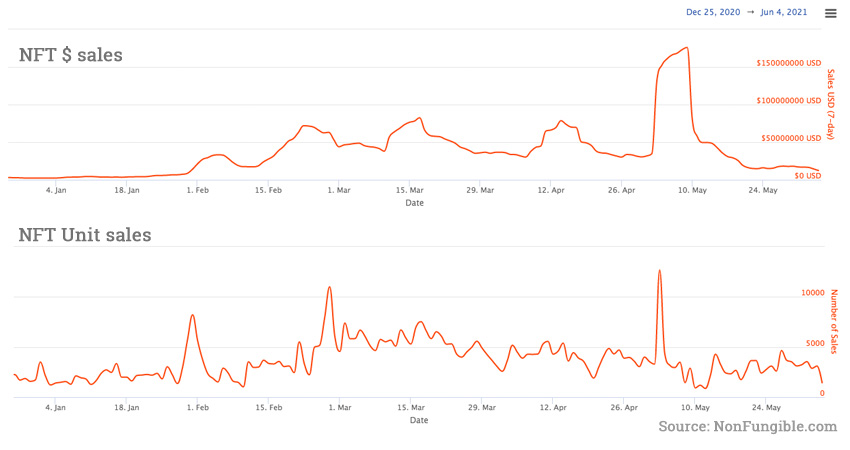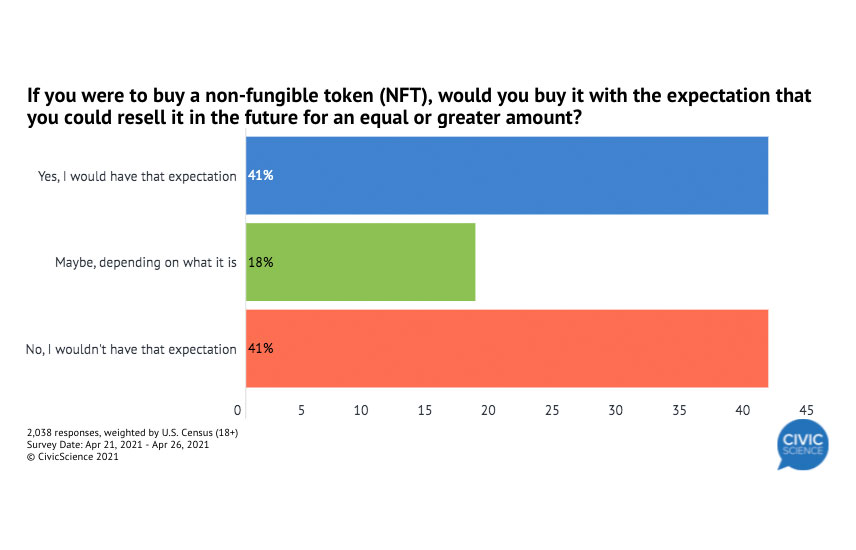Despite their meteoric rise to public attention in early 2021, recent surveys conducted in the U.S. show that a large proportion of the general population possesses a limited understanding of non-fungible tokens (NFTs) and knowledge of their functions.
First launched in 2017, NFTs are tradeable digital assets that exist on a blockchain and represent rights in an object that is usually digital but can also be physical. The NFT is verifiable and cannot be easily forged.
The first quarter of 2021 saw a dramatic increase in the discussion and activity around NFTs. Arguably much of that was triggered by NBA Top Shot that has generated more than $600 million in sales and attracted a broader audience to the space previously known mainly to cryptocurrency enthusiasts. In March, an auction hosted by Christie’s led to the $69.3 million sale of an NFT created by the digital artist Beeple.
Recently, however, NFT activity has slowed down. NFT sales have fallen nearly 90% since May 3, according to statistics from Nonfungible.com. However, May 3 saw an unusual spike in activity, and the average trend in transactions has been downwards since mid-March.

The surveys
Three recent surveys conducted by Security.org, Civic Science and YouGov America concur that familiarity with NFTs amongst Americans is lower than previously suggested. The three surveys respectively gathered that 66%, 79% and 66% of respondents had not heard of an NFT before the survey.
Unsurprisingly, most interest in NFTs is driven by the youngest age demographics. Security.org found that those aged 18 to 44 were twice as likely to have bought an NFT compared to the general population. Civic Science’s survey showed 14% of those aged 18 to 24 had purchased an NFT compared to just 3% for the 35 to 54 age group.
Yet, it appears as though the craze in NFTs is not entirely celebrity-driven. The Civic Science survey found that 95% of the general population would not feel more comfortable investing in NFTs if the company was backed by celebrities or athletes. However, the reality is that fans buy a reasonable proportion of NFTs.
If not celebrity-driven, another perception is that NFTs attract the get-rich-quick crowd. However, Civic Science found that 41% of people buy NFTs with the expectation that they could make a profit, but another 41% have no such expectation.
One of the greatest challenges for the future of NFTs is ensuring the long term longevity of this new market. The more people that want to own NFTs for the long haul, the better.






